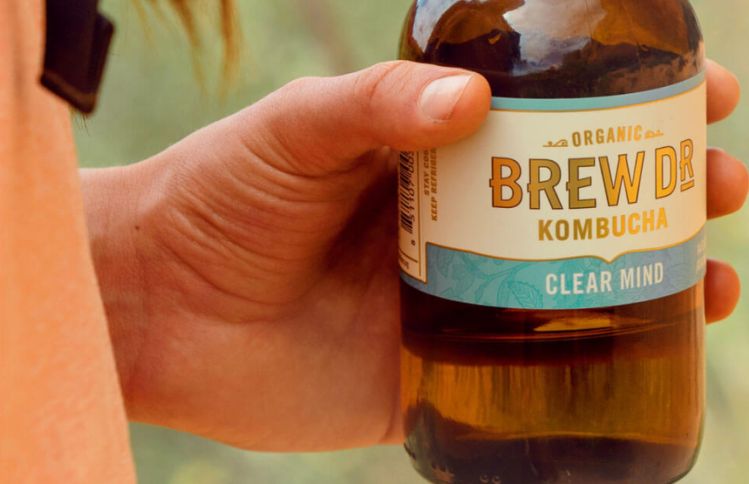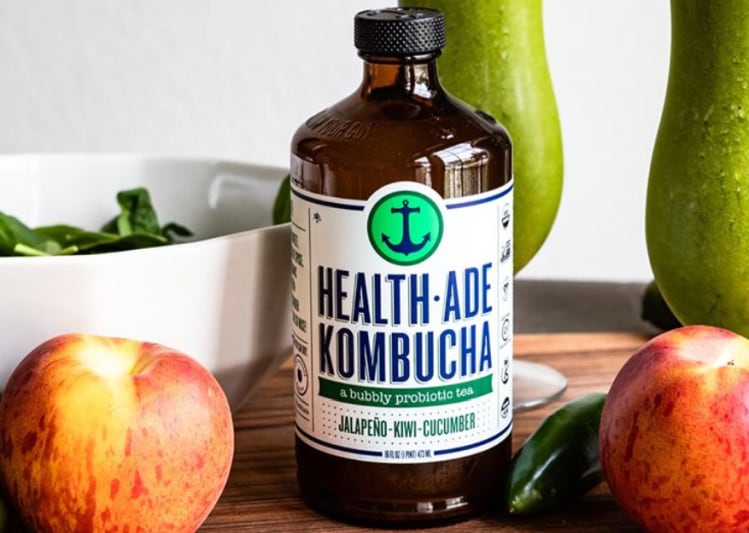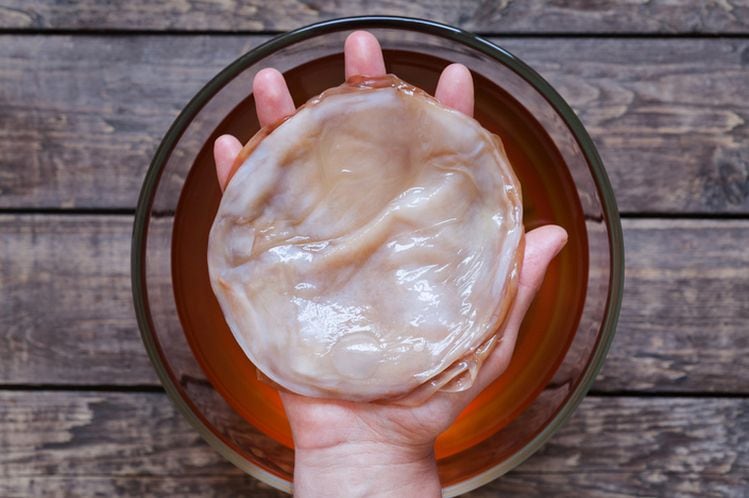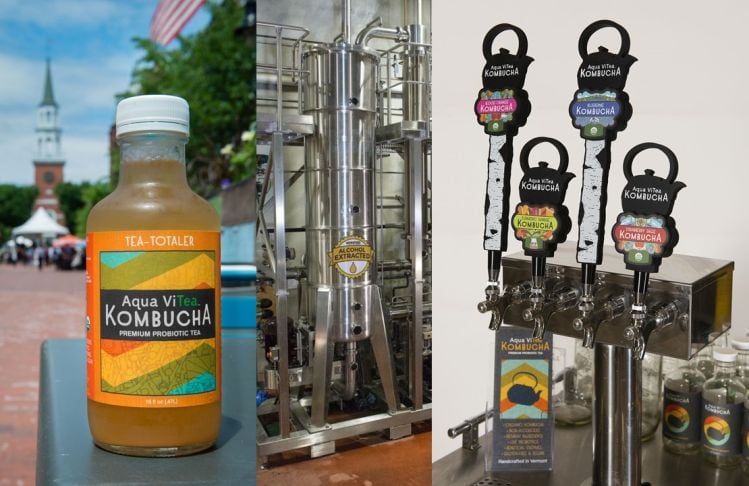According to a lawsuit* filed in Portland, Oregon last month - which follows a near-indentical case** filed in Illinois in May 2018 - Brew Dr's products were "falsely advertised and labeled as having a significantly higher amount of probiotic bacteria than the products sold actually contained."
The latest case homes in the quantity of 'probiotic bacteria' in such products, which it claims were in the tens of thousands rather than the billions. [Editor's note: The products pictured in the lawsuit reference "billions of live and active cultures" and "billions of beneficial bacteria, yeasts and organic acids" on product labels, but do not appear to use the term 'billions of probiotic bacteria.']
The complaint adds: "Independent laboratory testing has revealed that Defendant’s product labeling and advertisements were false and misleading because its kombucha drink products contained far less probiotics than specifically represented by Defendant. In fact, Defendant’s 'Clear Mind' kombucha drink has been shown to contain only 50,000 CFUs of probiotic bacteria per bottle—far less than the 'billions' advertised on its product labeling.
"Indeed... it is telling that Defendant has recently changed its labeling practices to remove all references to the amount of probiotic content in its kombucha drinks."
Billions of what, exactly?
The kombucha category has been fertile territory for plaintiff's attorneys in recent years given ongoing challenges over controling sugar and alcohol levels, the lack of clarity over ‘raw’ claims or what an 'authentic' kombucha actually is in the absence of a legal definition, and confusion as to whether fermented products naturally contain 'probiotics.'
Brew Dr did not respond to our requests for comment, but in court documents filed last summer relating to the 2018 lawsuit, it pointed out that its use of the term 'billions' referred to "probiotic bacteria, yeasts, and organic acids," not just bacteria.
Legal minefield
So what can we learn from the case?
Legal experts contacted by FoodNavigator-USA said it highlighted the confusion over probiotics among food marketers, with some brands assuming that all fermented foods and beverages using live cultures such as yogurt or kombucha by definition contain 'probiotics' and others arguing that any references to probiotics should be limited to brands adding well-documented probiotic strains with clinical backing.
According to the World Health Organization, probiotics are: "Live microorganisms which when administered in adequate amounts confer a health benefit on the host."
While it's possible that many fermented foods naturally meet this definition, few brands have analyzed the bacteria in their products, established whether it survives through the digestive tract, or proved via clinical studies that it confers any kind of health benefit.
Natalie Rainer, associate at law firm Keller and Heckman, told FoodNavigator-USA that firms making claims about the quantity of live microorganisms needed to "tread carefully" and ensure they had data supporting such claims throughout the shelf life of the product.
"There's a difference between live and active culture claims and probiotic claims. You can't make a probiotic claim about any bacteria."
Asked whether the case could get bogged down in arguments over testing methodologies, she added: "Maybe Brew Dr will challenge some aspects of the testing."
Why is Brew Dr being sued if it has already changed its labels?
As for the fact that Brew Dr is being sued over claims it is no longer making, but the plaintiff is nevertheless seeking 'injunctive relief' (eg label changes etc) as well as damages, this is not that unusual in the food litigation space, said Keller and Heckman partner Bob Niemann.
"They might be saying that they want Brew Dr to change its labels even more, or add some kind of statement for a limited period, but the main reason is that they want to make money. So in these cases the defendants will say it's moot, we've already changed our labels, but the plaintiff's attorneys will come back and say we forced you to do that and we should be compensated.
"Also if the case gets to class certification, the judge might not certify the damages portion of the case but will certify the injunctive portion. Here the claimants don't get any money, but the plaintiff's attorneys get their fees."
Attorney: It is common to file a lawsuit about packaging claims a company is no longer making
William Dance, senior counsel at law firm Sklar Kirsh noted: "It is common to file a lawsuit about packaging claims a company is no longer making. As long as they made the allegedly false label claim within the statute of limitations period, the suit alleging false advertising and unfair competition is viable."
Asked about the substance of the latest complaint, he added: "It is entirely possible that Brew Dr. Kombucha has billions of probiotic bacteria measured using some metric other than CFUs and that its label statement is not literally false. However, it can be true but still be misleading.
"To prevail, plaintiff will have to show that the reasonable consumer expects that probiotic quantity labeling is stated in terms of CFUs and that labeling referencing “billions” is misleading when the actual quantity in the product is less than billions of CFUs, difficult points for plaintiff to establish.
"These are fairly technical issues, and defendant could argue that reasonable consumers are not that sophisticated or educated about such esoterica. And even if plaintiff can establish that a reasonable consumer has specific expectations as to quantity and type of probiotic cultures, the case could get bogged down in testing methodology and definitions.
"To avoid these types of consumer class actions, any company that labels its products as containing probiotics would be well advised to label specifically as to strain, quantity, and expected duration of that quantity, and to avoid making health claims."
*Amos v Brew Dr Kombucha LLC 3:19-cv-01663
**Bazer v Brew Dr Kombucha LLC 1:18-cv-02560
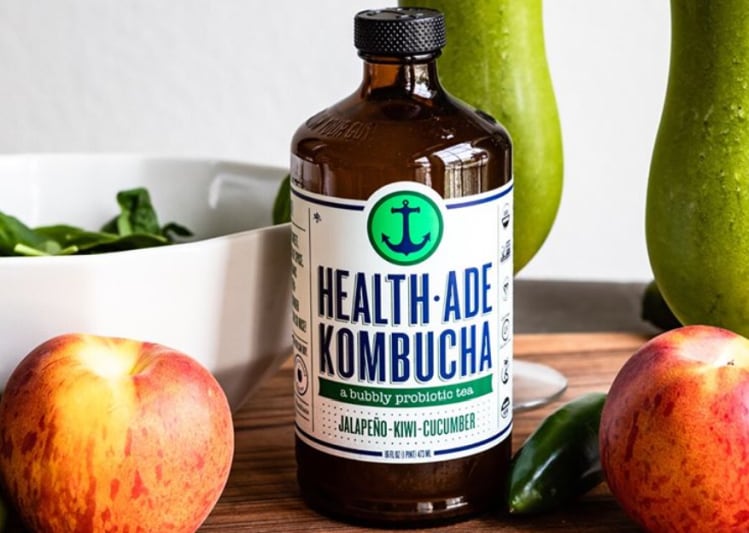
An agreement whereby Health-Ade will pay out almost $4m to settle two lawsuits alleging discrepancies between the sugar and alcohol levels in its kombucha and those stated on pack has been approved by a California court. The firm has also agreed to make formulation changes and include a new statement on its labels.
Read more HERE.
Kombucha: What's the size of the prize?
US retail sales of refrigerated kombucha and other fermented beverages (including hard kombucha) were up 21% to $728.8m in measured channels* in the year to February 24, 2019 driven by strong distribution gains. However, velocities were down fairly sharply, delegates at the 2019 KombuchaKon conference were told.
*Total retail sales are likely much higher after you include data from retailers such as Costco and Whole Foods that don’t share their sales with SPINS and other data providers. The refrigerated kombucha and fermented beverages category comprises non-alcoholic kombucha (below 0.5% abv), hard kombucha, apple cider vinegar, plus other fermented beverages such as water kefir, Jun, kraut juice, Kvass, and whey fermented soda. Read more HERE.

